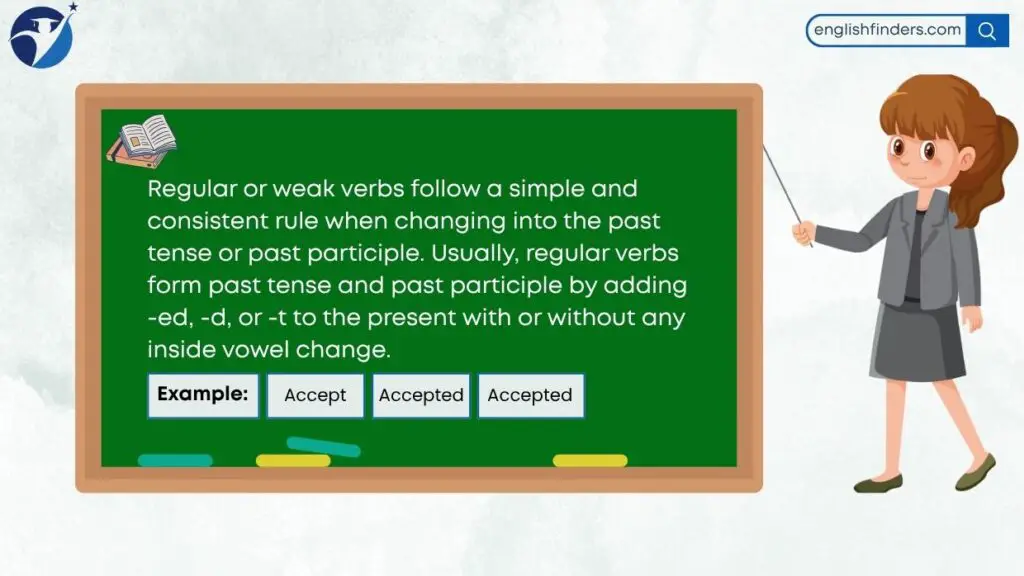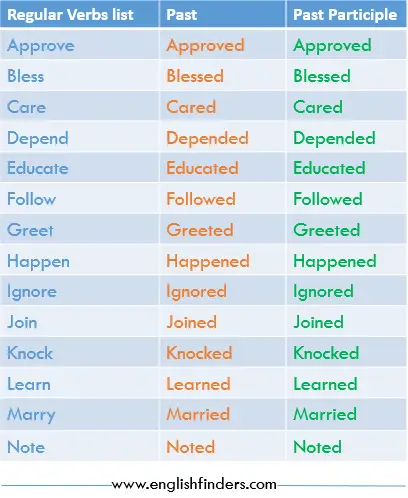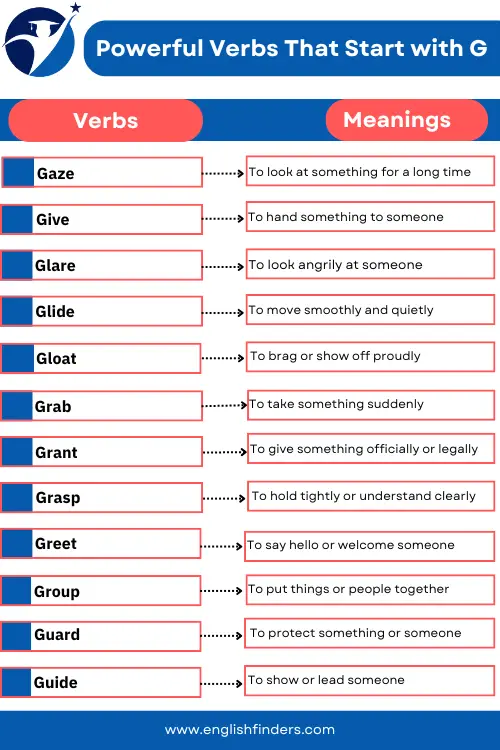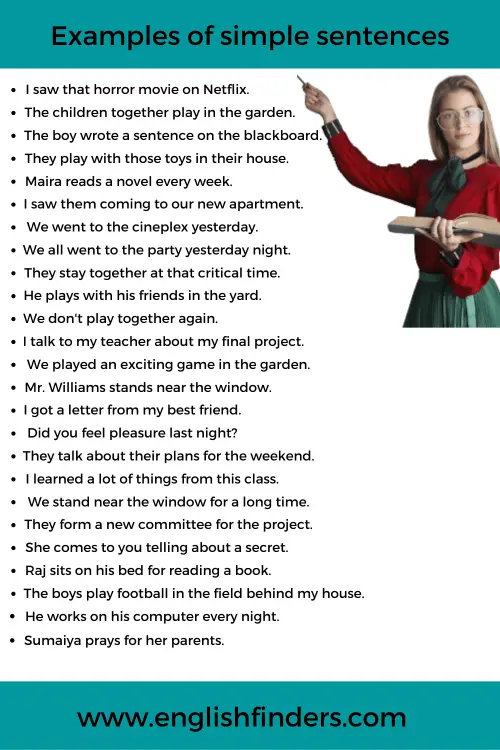Last updated on June 19th, 2025 at 09:11 pm
The English language has a lot of regular or weak verbs. In this lesson, we’ll discuss the 150 most common and valuable regular verbs list in English. Before mentioning those verbs, we have to know how to identify regular English verbs.
What are Regular or Weak Verbs?
Quick Navigation

Regular or weak verbs are verbs that follow a simple and consistent rule when changing into the past tense or past participle. Usually, regular verbs form their past tense and past participle by adding -ed, -d, or -t to the present with or without any inside vowel change.
Most of the verbs add -ed at the end to form past and past participles. Let us see some examples in the below table:
| Present | Past | Past Participle |
| Accept | Accepted | Accepted |
| Add | Added | Added |
| Boil | Boiled | Boiled |
| Cheer | Cheered | Cheered |
| Delay | Delayed | Delayed |
If the verb ends with the vowel ‘e’ then only -d will be added to form past and past participles. Let us see some examples in the below table:
| Present | Past | Past Participle |
| Agree | Agreed | Agreed |
| Change | Changed | Changed |
| Dare | Dared | Dared |
| Hope | Hoped | Hoped |
| Love | Loved | Loved |
If the verb ends with the letter ‘y’, then ‘i’ will be placed instead of ‘y’, and -ed/d will be added to form past and past participles. Let us see some examples in the below table:
| Present | Past | Past Participle |
| Carry | Carried | Carried |
| Dry | Dried | Dried |
| Try | Tried | Tried |
| Pay | Paid | Paid |
| Say | Said | Said |
Regular verbs also form their past and past participles by a minor change to the present form and by adding “t” at the end. Let us see some examples in the below table:
| Present | Past | Past Participle |
| Build | Built | Built |
| Buy | Bought | Bought |
| Catch | Caught | Caught |
| Feel | Felt | Felt |
| Keep | Kept | Kept |
150 Most Common Regular Verbs List with Examples
Now let us see the 150 most common and valuable Regular Verbs List with past, past participle, and Examples:
| Present | Past | Past Participle | Examples |
| Accept | Accepted | Accepted | Please accept my request. |
| Add | Added | Added | It’s time to add another skill. |
| Admire | Admired | Admired | I admire your success in life. |
| Advise | Advised | Advised | He advises you on your next step. |
| Appear | Appeared | Appeared | Suddenly, he appeared at our house. |
| Approve | Approved | Approved | Our principal approved this program. |
| Argue | Argued | Argued | Don’t argue with him. |
| Arrange | Arranged | Arranged | They’re arranging a picnic. |
| Arrive | Arrived | Arrived | He arrived at the airport on time. |
| Attach | Attached | Attached | Attach your photo to the CV. |
| Attend | Attended | Attended | Attend the class on time. |
| Attract | Attracted | Attracted | He is trying to attract some foreign buyers. |
| Avoid | Avoided | Avoided | Don’t avoid your parents. |
| Balance | Balanced | Balanced | Balance your diet. |
| Ban | Banned | Banned | He is banned from the game. |
| Beg | Begged | Begged | Liam begged for donations to feed the orphans. |
| Behave | Behaved | Behaved | The way you behave towards me is fantastic. |
| Belong | Belonged | Belonged | I belong to a low-income family. |
| Bless | Blessed | Blessed | May the almighty bless you. |
| Boil | Boiled | Boiled | Boil the egg on time. |
| Borrow | Borrowed | Borrowed | He borrowed some money from his friend. |
| Brush | Brushed | Brushed | Brush your teeth properly. |
| Burn | Burned | Burned | The building is burning. |
| Call | Called | Called | Please call me before the class. |
| Care | Cared | Cared | We should care for our children. |
| Carry | Carried | Carried | Carry the book in your bag. |
| Challenge | Challenged | Challenged | He will challenge you to the competition. |
| Change | Changed | Changed | They have changed their terms and conditions. |
| Cheat | Cheated | Cheated | You cheat me. |
| Check | Checked | Checked | Please check your question paper. |
| Claim | Claimed | Claimed | He claims ownership of the house. |
| Clean | Cleaned | Cleaned | Try to clean your home every day. |
| Clear | Cleared | Cleared | He didn’t clear the actual incident. |
| Close | Closed | Closed | Close the window. |
| Collect | Collected | Collected | He is collecting information for a documentary. |
| Communicate | Communicated | Communicated | I’ll communicate with you tomorrow. |
| Compare | Compared | Compared | Don’t compare me with him. |
| Compete | Competed | Competed | You have to compete globally. |
| Concentrate | Concentrated | Concentrated | Please concentrate on your studies. |
| Concern | Concerned | Concerned | He is concerned about his final result. |
| Confess | Confessed | Confessed | It’s time to confess the actual story. |
| Confuse | Confused | Confused | Don’t be confused while solving math. |
| Connect | Connected | Connected | He failed to connect to the internet connections. |
| Consist | Consisted | Consisted | This bike consists of advanced technology. |
| Continue | Continued | Continued | We have to continue our homework. |
| Correct | Corrected | Corrected | Don’t forget to correct yourself. |
| Damage | Damaged | Damaged | It should not be worth damaging the construction. |
| Deceive | Deceived | Deceived | The robber deceived the police. |
| Decide | Decided | Decided | He decides not to go there. |
| Delay | Delayed | Delayed | You’ve been delaying for a long time. |
| Delight | Delighted | Delighted | I’m delighted to see your success. |
| Depend | Depended | Depended | I depend on my brother. |
| Describe | Described | Described | Describe the story in brief. |
| Deserve | Deserved | Deserved | You deserve a better life partner. |
| Destroy | Destroyed | Destroyed | Don’t destroy your life. |
| Develop | Developed | Developed | You need to develop your fluency. |
| Divide | Divided | Divided | Divide the property between the two brothers. |
| Discuss | Discussed | Discussed | Let us discuss the current issue. |
| Earn | Earned | Earned | I always try to earn money in legal ways. |
| Educate | Educated | Educated | Educate yourself to build a better nation. |
| Employ | Employed | Employed | Mr. Zaman employs him as a general manager. |
| Encourage | Encouraged | Encouraged | I encourage you to do the task. |
| End | Ended | Ended | End your homework correctly. |
| Enjoy | Enjoyed | Enjoyed | He has enjoyed the program. |
| Enter | Entered | Entered | Please enter the classroom. |
| Escape | Escaped | Escaped | He escaped from his home. |
| Excite | Excited | Excited | I’m excited enough to see you. |
| Explain | Explained | Explained | Explain the story in brief. |
| Extend | Extended | Extended | He intends to extend the time of his visa. |
| Face | Faced | Faced | You have to face the challenge. |
| Fail | Failed | Failed | You have failed the examination. |
| Fear | Feared | Feared | Don’t fear seeing the animal. |
| File | Filed | Filed | He filed a case against his enemy. |
| Fill | Filled | Filled | Fill in the vacancy at your company. |
| Fix | Fixed | Fixed | Fix the issue as soon as possible. |
| Follow | Followed | Followed | I always try to follow your instructions. |
| Gaze | Gazed | Gazed | I’m gazing at the bird. |
| Greet | Greeted | Greeted | Everyone greets him for his success. |
| Guess | Guessed | Guessed | Do you guess the person? |
| Happen | Happened | Happened | Let’s explain what happened there. |
| Harass | Harassed | Harassed | Don’t harass any woman. |
| Harm | Harmed | Harmed | Don’t harm anyone else. |
| Hate | Hated | Hated | Samiya didn’t hate her husband. |
| Help | Helped | Helped | He is happy to help poor people. |
| Hope | Hoped | Hoped | I hope everything will be alright. |
| Identify | Identified | Identified | Did you identify the guy? |
| Ignore | Ignored | Ignored | He will never ignore you. |
| Imagine | Imagined | Imagined | Just imagine the incident for a while. |
| Impress | Impressed | Impressed | He tries to impress his boss. |
| Include | Included | Included | Everything is included in the file. |
| Increase | Increased | Increased | The price of essential goods is increasing. |
| Influence | Influenced | Influenced | He has influenced the investigation. |
| Inform | Informed | Informed | Please inform your co-worker. |
| Interest | Interested | Interested | I’m interested in participating there. |
| Interfere | Interfered | Interfered | Don’t interfere with my personal life. |
| Introduce | Introduced | Introduced | Introduce yourself within five sentences. |
| Invite | Invited | Invited | You’re invited to the wedding party. |
| Join | Joined | Joined | You can join us. |
| Judge | Judged | Judged | Don’t judge anything blindly. |
| Kill | Killed | Killed | He killed a bird. |
| Knock | Knocked | Knocked | Did you knock him to attend the class? |
| Laugh | Laughed | Laughed | He is laughing at seeing his friend. |
| Learn | Learned | Learned | I’m learning from the lesson. |
| Listen | Listened | Listened | He has been listening to songs for two hours. |
| Live | Lived | Lived | They have been living in the UK for three years. |
| Look | Looked | Looked | Look at the window. |
| Love | Loved | Loved | He loves his parents. |
| Manage | Managed | Managed | Try to manage your father. |
| Marry | Married | Married | She will get married in two years. |
| Memorize | Memorized | Memorized | Try to memorize the lesson. |
| Mourn | Mourned | Mourned | He is mourning the departure of his sister. |
| Need | Needed | Needed | I need you right now. |
| Note | Noted | Noted | Your present activities will be noted. |
| Obey | Obeyed | Obeyed | Please obey your teacher’s words. |
| Observe | Observed | Observed | Do you observe his behavior? |
| Obtain | Obtained | Obtained | He obtained a GPA of 5 on the final exam. |
| Occur | Occurred | Occurred | The opening ceremony will occur next week. |
| Open | Opened | Opened | Please open the door of your room. |
| Order | Ordered | Ordered | He ordered his son to do this task. |
| Pass | Passed | Passed | I hope you will pass in English. |
| Perform | Performed | Performed | You have to perform there. |
| Permit | Permitted | Permitted | If you permit me, I will enter the room. |
| Play | Played | Played | He is playing football. |
| Pray | Prayed | Prayed | Please pray for me to get a job. |
| Prepare | Prepared | Prepared | He is preparing for the upcoming days. |
| Prevent | Prevented | Prevented | Prevent him from doing bad things. |
| Promise | Promised | Promised | Promise me you won’t forget the moment. |
| Question | Questioned | Questioned | Don’t question him about his matter. |
| Raise | Raised | Raised | Raise your voice against corruption. |
| Reach | Reached | Reached | We have reached the place on time. |
| Realize | Realized | Realized | Now he realizes his mistakes. |
| Reduce | Reduced | Reduced | Will you reduce the price of the product? |
| Refuse | Refused | Refused | Please don’t refuse my request. |
| Remove | Removed | Removed | He removed old furniture from his home. |
| Return | Returned | Returned | When will you return from the market? |
| Satisfy | Satisfied | Satisfied | I’m satisfied to work with you. |
| Save | Saved | Saved | We have to save her life. |
| Search | Searched | Searched | He is searching for a team member for his business. |
| Skip | Skipped | Skipped | Don’t skip essential lessons. |
| Start | Started | Started | Start your homework right now. |
| Stop | Stopped | Stopped | Stop wasting your valuable time. |
| Suggest | Suggested | Suggested | Suggest a Nobel for me. |
| Surprise | Surprised | Surprised | I will surprise you one day. |
| Talk | Talked | Talked | Now talk to me to discuss this matter. |
| Thank | Thanked | Thanked | Thank him for his achievement. |
| Travel | Traveled | Traveled | I intend to travel with you. |
| Use | Used | Used | You may use this shampoo for the shower. |
| Vanish | Vanished | Vanished | He has vanished from the city. |
| Wait | Waited | Waited | Wait for me for a while. |
| Walk | Walked | Walked | He is walking in the street. |
Wrapping Up
To improve our English grammar skills, we need to understand the regular or weak verbs. These 150 regular verbs mentioned above will definitely help you to improve your grammar and vocabulary skills. You have to memorize and practice them regularly. Don’t forget to use them in your writing and daily conversations.
Frequently Asked Questions
What is a regular verb?
A regular verb is a verb that forms its past tense and past participle by adding -ed, -d, or in some cases -t to its base form. For example, “talk” becomes “talked” in both the past simple and past participle forms.
How do I know if a verb is regular or irregular?
Regular verbs follow a consistent pattern by adding -ed or -d in the past tense and past participle, while irregular verbs do not follow this rule and have unique forms that need to be memorized, such as “go” (went, gone).
What is the difference between V2 and V3 forms?
V2 refers to the past simple form of the verb (e.g., “played”), while V3 refers to the past participle form, which is used in perfect tenses and passive voice (e.g., “have played”). For regular verbs, V2 and V3 are the same.

Azizul Hakim is the founder & CEO of englishfinders.com. He is a passionate writer, English instructor, and content creator. He has completed his graduation and post-graduation in English language and literature.





exellent
Thank u!